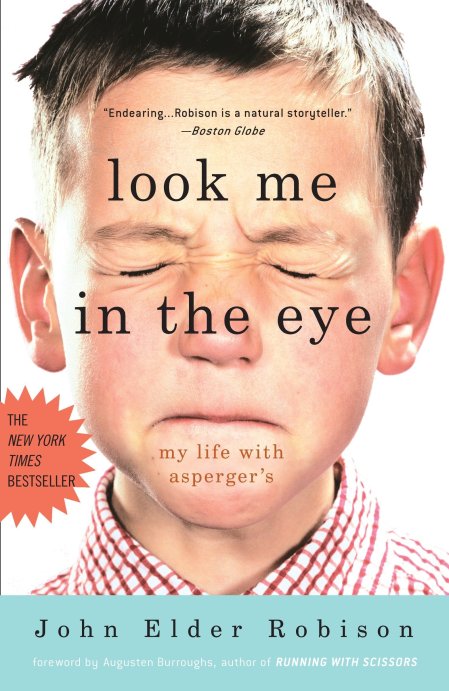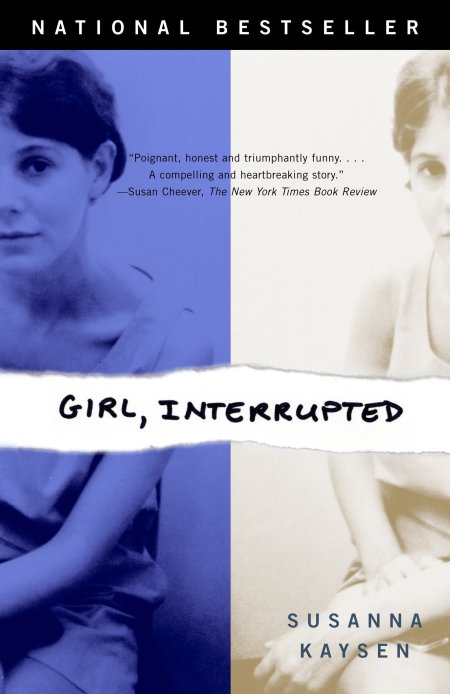7 Biographies That Changed My Life
There are few things more lovely in this life than witnessing the life story of another person. Every single person has a unique story to tell. I wanted to share a few books that touched my heart and changed how I understood the world around me forever.
1. Look Me in the Eye: My Life with Asperger's
I read this book in high school because it was considered (at that time) one of the most popular mental-health-related real-life accounts out there. This novel follows the life story of John Robison, a man who was well into his 40s before he was diagnosed with Asperger’s Syndrome. We see him grow up from a young boy and into a teen, where he is labeled a “social deviant” for his unique behaviors, like avoiding eye contact, dismantling radios, and bringing non-sequiturs into conversations. As he grew into adulthood, people would often say he was a savant with electronics so he started to freelance with groups like KISS.
His story inspired me during a time that I realized I also was coping with mental illness. While I wasn’t diagnosed with Asperger’s disease, I was coming to terms with my severe depression and how the world could accept me as I was – and am. This idea that my illness could be considered a positive if I worked in the right position at the right company was extremely exhilarating.
2. The Girls Come Marching Home: Stories of Women Warriors Returning from the War in Iraq
Published in 2009, this anthology highlights the issues women were facing by fighting in the front lines in Iraq despite the ban on women in “front-line combat” at the time. These women faced a lot of injustices during the time they served and the oft-repeated “support the troops” is often not expanded to female soldiers in the same regard in real life. Some people were not fans of the editing style, but the actual stories themselves came at a very important time for me. I entered the military for a year but had to leave due to medical reasons. Honestly, this collection made me feel thankful that I had to make things work outside of my initial plans.
3. The Immortal Life of Henrietta Lacks
Over the years, she was misnamed as Helen Lane and Helen Larson.After going into John Hopkins Hospital for help with what she described as a “knot in her womb”. She was diagnosed with cervical cancer at 31. The real woman behind the famous HeLa cells was named Henrietta Lacks. While hospitalized, they attempted to cure her using radium, and during her care, the doctors took her cells without consent. Neither she or her family was notified and while her cell cultures went on to change the medical world forever, her family was not even able to get basic medical care. Fortunately, after writing this book, the author decided to start the Henrietta Lacks Foundation. The official website says,
“The Foundation also seeks to promote public discourse concerning the role that contributions of biological materials play in scientific research and disease prevention, as well as issues related to consent, and disparities in access to health care and research benefits, particularly for minorities and underserved communities.”
4. The Barefoot Lawyer: A Blind Man’s Fight for Justice and Freedom in China
The Barefoot Lawyer is a book that briefly starts with Chen Guangcheng scaling the wall surrounding his home, which was currently being heavily guarded since he was under house arrest to escape – and mind you, he’s completely blind. He shows up a few days later at the US Embassy in Beijing asking for the chance to spend his life in the United States. I don’t want to give much more away, but it was an awe-inspiring, phenomenal read. As soon as I heard about this book, I wanted to read it. I called the library twice a week for a month until they got the book in. (I’m so sorry, dear librarians!)
5. At the Root of This Longing: Reconciling a Spiritual Hunger and a Feminist Thirst
During a time where I was questioning who I wanted to be, this book helped me decide what I did and did not need to choose. Often in the history of women’s rights in the West, there is this pervasive idea that being religious and being a feminist are on two completely different wavelengths. She put emphasis on setting up daily ritual and not shying away from things deemed “womanly” but working traditional female roles into the modern area to use them to help other people. (For example, she suggests that if one likes cooking, they could cook for a homeless shelter.)
6. I Know Why the Caged Bird Sings
Reading Maya’s series of autobiographies really helped me come to terms with the reality of humanity. At one point, Maya was so convinced that her words could kill people that she refused to speak for five years straight. This was after the man who sexually abused her as a young child was arrested, set free and murdered, presumably for his crimes against her by her uncles. In this book, Maya Angelou discusses so many poignant milestones, but also her successes. She tells the story of a young woman who embodies perseverance and never let the nay-sayers win.
She showed me that courage is not something people are born with, but something you come into – usually because you feel like you have to be brave. She has always inspired me.
7. Girl, Interrupted
This novel came out the year I was born, so by the time I read it in high school, there was a movie out and it was an established classic in its genre. Girl, Interrupted is the memoir of Susanna Kaysen, when she was put into a psychiatric hospital in the 1960s after she had attempted suicide. As somebody with a long history of mental illness, it helped me feel less alone to read that characters were having thoughts much like my own. I felt by the end that these characters were waging a war with themselves and winning, and in some messed up way, it made me feel like I too could win against my own illnesses. I would, however, issue several trigger warnings with the book and the subsequent 1999 film. There are several topics that be of concern to audiences such as (but not limited to) suicidal ideation, sexual assault, child abuse, sexism, racism, violence, and eating disorders.
This book is not for all audiences.
“If there is a book that you want to read, but it hasn’t been written yet, you must be the one to write it.” – Toni Morrison










